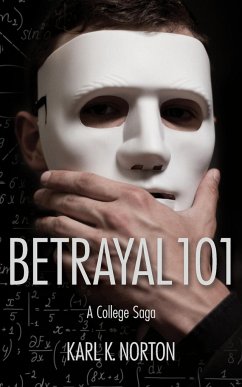After being awarded a PhD in mathematics, Ken Russell begins teaching at a state university. Despite his conscientious efforts to help students succeed, they fail at an alarming rate. Many of his students lack mathematical skills they should have learned before taking his courses, and others are chronic absentees. When he is accused of poor teaching by a number of students, colleagues, and even the dean, he loses his job and is seemingly blacklisted for academic work. He spends several years unemployed and supported by his wife. Finally forced to work outside academia, he accepts a menial industrial job paying a low wage. He is slowly promoted but is laid off after a few years. He then accepts an unexpected offer of a faculty position at a small college but finds himself working at cross-purposes with most of the campus community. Too late, he learns the great secrets of American higher education.
Hinweis: Dieser Artikel kann nur an eine deutsche Lieferadresse ausgeliefert werden.
Hinweis: Dieser Artikel kann nur an eine deutsche Lieferadresse ausgeliefert werden.









